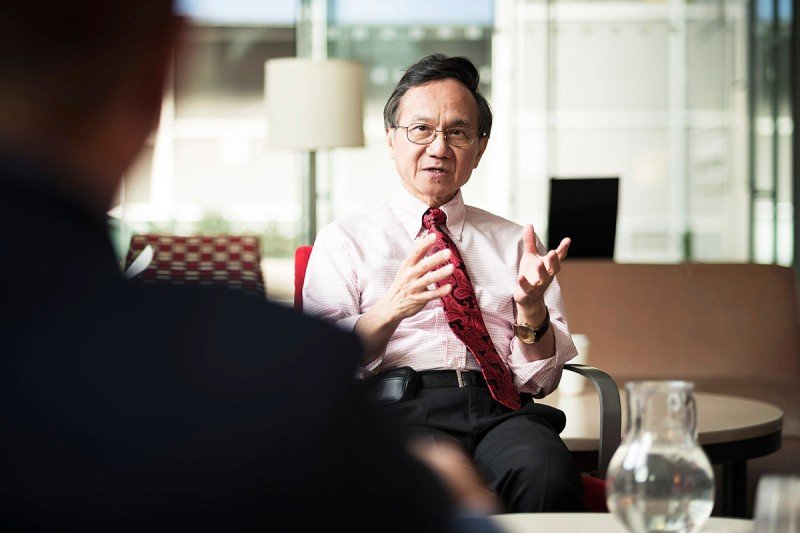
Neuroblastoma is a rare cancer of the nerve tissue that usually arises in the abdomen. It mainly affects young children. Although the disease used to be fatal in nearly all cases, the outlook has improved considerably in the last two decades — largely due to techniques and therapies pioneered at Memorial Sloan Kettering.
Now one of these treatment options has taken an important step toward becoming more widely available. An immunotherapy drug created at MSK has received Breakthrough Therapy Designation from the US Food and Drug Administration. The drug, naxitamab (also called humanized 3F8 or Hu3F8), is intended for patients with high-risk, resistant forms of neuroblastoma. An earlier form of the drug has been used to treat the disease at MSK for several decades.
Naxitamab is a monoclonal antibody. It was conceived and developed by MSK physician-scientist Nai-Kong Cheung, who heads MSK’s Neuroblastoma Program. The drug detects neuroblastoma cells that have survived chemotherapy or radiation therapy by attaching to a marker called GD2 on the cells. This helps stimulate a patient’s own immune system — especially white blood cells — to destroy the neuroblastoma cells.
The FDA gives a drug Breakthrough Therapy Designation when early clinical data show that it may show substantial improvement over existing therapies. The designation is intended to speed up the review process of these drugs. It was granted to naxitamab based on results from early clinical studies testing the drug in children who had not responded to other treatments.
Refining a Powerful Treatment
Naxitamab is a humanized form of the mouse antibody 3F8. Beginning in the late 1980s, MSK investigators used 3F8 in combination with surgery and chemotherapy to treat neuroblastoma. This method significantly improved cure rates for children with high-risk disease. In 2007, Dr. Cheung and colleagues at MSK began developing a humanized form of 3F8 called Hu3F8. (Humanized monoclonal antibodies are less likely to be destroyed by the immune system and substantially more potent than mouse antibodies). They started testing Hu3F8 in a phase I clinical trial in 2011 to investigate the best and safest dose to give.
In 2015, MSK licensed Hu3F8 to Y-mAbs Therapeutics to manufacture the drug and expand testing. This biotechnology company was founded by business executive Thomas Gad, whose own daughter’s neuroblastoma was successfully treated with 3F8 at MSK more than a decade ago. When she relapsed after a few years, she received another treatment developed by Dr. Cheung called 8H9 (burtomab or omburtamab), which received Breakthrough Therapy Designation from the FDA in 2017.
The clinical testing of Hu3F8 has been led by pediatric oncologist Brian Kushner and the neuroblastoma clinical team.
The goal is for Hu3F8 to receive full FDA approval to treat neuroblastoma outside a clinical trial. This would make it far more accessible to people in the United States and worldwide.
Nai-Kong Cheung has received commercial research grants from Y-mAbs Therapeutics and is a part owner of the company. Dr. Cheung is the inventor and owner of issued patents licensed by MSK to Y-mAbs.



